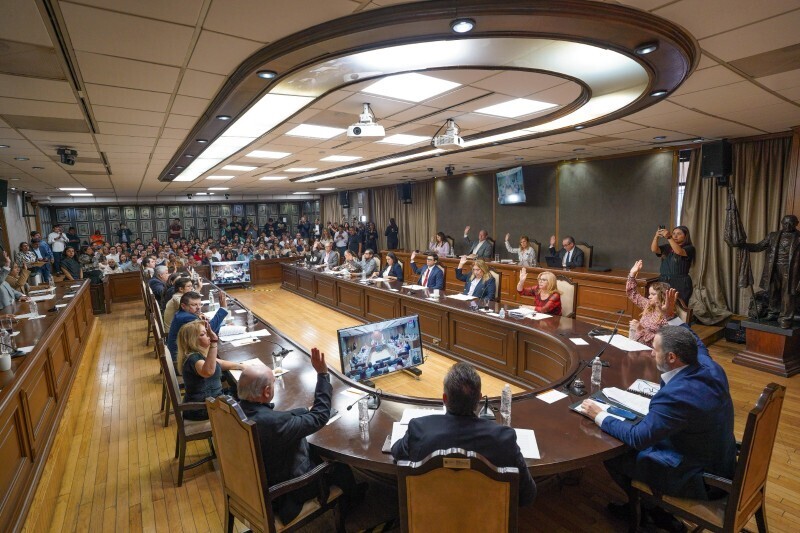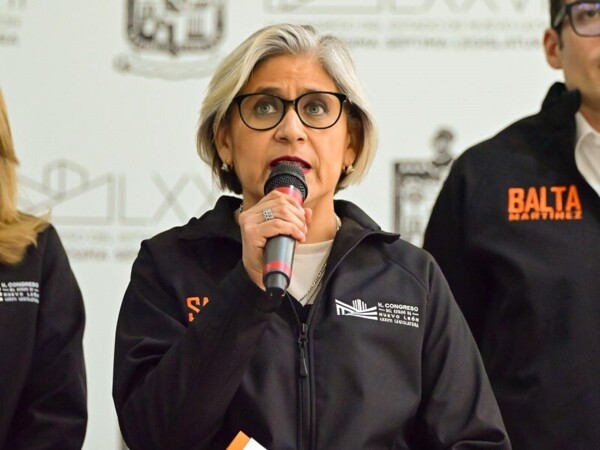
The heart of the political dispute is the issue of changing party affiliation. 'Politics is just the background; when we took office, we swore to uphold the political constitution, which is legally binding,' said a PRI party member. Gámez Garza was even more blunt: 'I find it lamentable that people place their trust in you, you align with party ideologies, you get into office, and then you switch parties as if it were prostitution. It's lamentable, it's for private interests... Let the party's internal conflicts be resolved outside.' The intensity of the opposition reflects Morena's interest in adding another PRI council member to its bloc in the coming weeks. Meanwhile, councilman Antonio Chávez—the most recent switch from MC to Morena—even considered taking legal action against councilwoman Gámez Garza for alleged insults and accepted criticism over the changes. 'This situation of non-formalized changes does not guarantee the legal certainty we must provide and leaves the public in uncertainty, who have the right to know clearly how the Council Groups are formed and who integrates them,' Gallardo said in his explanatory statement. Additionally, the MC councilman stated that the proposal 'does not seek to limit the decisions of councilors regarding their affiliation, but rather to order, formalize, and transparentize these movements, ensuring they are properly documented.' In turn, the coordinator of Morena's councilors, Gibran Ornelas, agreed to improve the procedures for integrating members into his bloc. The most recent example is the departure of Antonio Chávez from MC to Morena, announced last week, however, the legal process for the change has only just begun today. The PRI councilman, Mario Plata, pointed out that changes should not be made 'through the media,' and the PAN councilwoman Adriana Gámez lamented the situation, calling it 'political prostitution.' However, he did not mention that it could be a 'dirty war' against the 4T for 'continuously adding profiles.' 'It has been identified that some changes between Council Groups are being made in a non-formal manner, that is, publicly, informing the City Council economically, but without fully following the appropriate procedural paths. But I ask that you be well-informed, there is a lot of dirty war within our party, Morena is growing, let the people know that Morena is increasing in Monterrey and Nuevo León,' said the Morena councilman. The opposition's responses were not long in coming. 'Gibran, it's good that you tell us this orally, I don't know much about laws, but the internal regulations state that you should have put this forward prior to the council session, not through the media.' He argued that changes—led by the 4T movement—are being made informally. 'I ask my councilwoman colleague, if that person used that word towards my person, we could talk about legal disputes.' 'I will look into it, it's a party matter, we will do it in due time and form. It's a good message for the people who see us, to know how the political groups are being formed.' Following the constant integration of councilors from other parties into Morena's bloc in Monterrey, the Movimiento Ciudadano bloc requested that the City Hall Secretariat regularize, document, and keep updated the official registry of the affiliation and permanence of councilors in their respective political groups. The request was presented by councilman Roberto Gallardo. 'I agree, we are all subject to criticism but not to insults, a situation I do not agree with... there is always disqualification when there are no arguments,' said the now Morena member.














